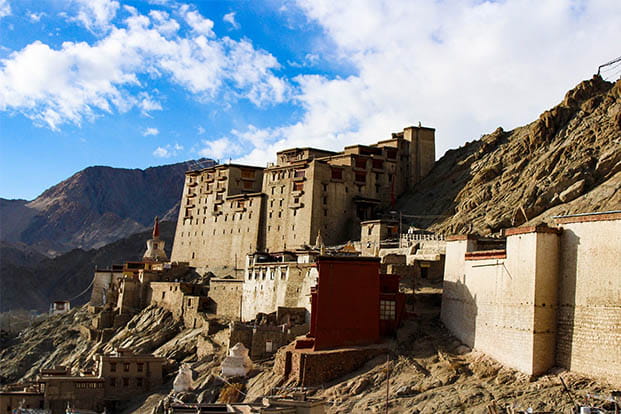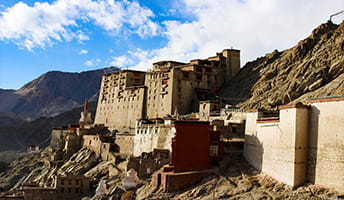
This month's security bulletin focuses on:
- Ladakh
- Poland
- United States
- United Kingdom
- Stuttgart
Lockdown is ever so slowly easing and there are reports of some increase in travel – however in comparison to what was usual, these increases are nothing to write home about. Whilst many parts of the world are starting to move on, even as they continue to deal with COVID-19 – whether that be with a tentative resumption of life as “normal” post the first wave or in the midst of second and even third waves in China, it should be borne in mind that there are also areas that are still seeing significant infection rates, so this crisis still has some way to go yet.
China/India
 The Line of Actual Control (LAC) in the Galwan Valley, Ladakh – a union territory of India has long been a source of some tension between China and India. There have often been reports of unarmed fights between soldiers of both countries along the LAC. Things seem to have taken a more serious turn lately. Last year India built a road connecting a recently reactivated forward high-altitude air base, the road ran alongside the LAC and angered China which viewed it as a change to the status quo. China was quick to start its own infrastructure project on its side of the LAC. Strategically important, it appears as though India has been caught off guard as the usual military occupation of the region did not happen as standard after the spring thaw.
The Line of Actual Control (LAC) in the Galwan Valley, Ladakh – a union territory of India has long been a source of some tension between China and India. There have often been reports of unarmed fights between soldiers of both countries along the LAC. Things seem to have taken a more serious turn lately. Last year India built a road connecting a recently reactivated forward high-altitude air base, the road ran alongside the LAC and angered China which viewed it as a change to the status quo. China was quick to start its own infrastructure project on its side of the LAC. Strategically important, it appears as though India has been caught off guard as the usual military occupation of the region did not happen as standard after the spring thaw.
Incursions across the LAC by both countries have been a regular occurrence, which are normally sorted out at the local military level. And whilst scuffles do happen, as patrols often bump into each other, the recent violence is certainly an escalation. At least 20 Indian Army troops were killed in the confrontation that took place on Monday 15 June. Reports from India have suggested that the patrol was ambushed by Chinese soldiers armed with metal spiked clubs (soldiers are not armed in the region as shots fired would be considered an act of war), while opposing Chinese reports state that Indian soldiers crossed the border twice “provoking and attacking Chinese personnel”. Reports of Chinese casualties have not been confirmed.
Whilst even in normal times the chances of travel being undertaken to this part of the world are very small - although the Indian Government has been pushing tourism in the wider Ladakh region - this is a situation that could potentially have far reaching consequences. Hopefully cool heads will prevail, but something to keep abreast of.
Poland
In another - although fortunately nowhere near as serious - case of border crossing and occupation, it appears that Polish troops inadvertently occupied a Czech Republic church. As part of coronavirus measures in May, Polish troops were deployed to the border and in one case across it! Whilst the issue was quickly rectified when the establishment became aware of it – at one point Czech civilians were kept at gunpoint from accessing the church, which goes to highlight the importance of not getting too caught up in believing you are right when confronted by people in authority. Best to remain polite, abide by instructions you are given and refer to the relevant bodies when out of the situation.
United States
 The killing of George Floyd whilst under arrest in Minneapolis on Monday 25 May has had a huge impact in the US and across the world, with Black Lives Matter protests and counter-protests occurring globally. While the majority of the protests have been peaceful, there is always a potential for escalation, so travellers should keep a close eye on their surroundings, and if accidentally caught up in a protest, exit as soon as possible.
The killing of George Floyd whilst under arrest in Minneapolis on Monday 25 May has had a huge impact in the US and across the world, with Black Lives Matter protests and counter-protests occurring globally. While the majority of the protests have been peaceful, there is always a potential for escalation, so travellers should keep a close eye on their surroundings, and if accidentally caught up in a protest, exit as soon as possible.
Given the ongoing COVID-19 situation there are also possible ramifications in the ongoing transmission and spread of the virus in the US and elsewhere as a result of protest and counter-protest activity. It remains to be seen if it will have any noticeable effect on the “R” number.
United Kingdom
Friday evening 19 June, in Reading, UK, saw a horrific stabbing attack as three individuals were killed randomly whilst enjoying a socially-distanced meet up and drink in the park. The suspect, who was apprehended at the scene, is Libyan-born Khairi Saadallah. Saadallah had come to the attention of MI5 last year, although the file was closed after a couple of months as no evidence was found to support the claim that he was planning to travel back to Libya to join a militant group. Unfortunately, it is likely that these types of attack will continue, albeit the chances of being caught up in one are vanishingly small. It is a reminder to always have some degree of awareness of your surroundings when in a public place and to have thought about how you might react if confronted.
Germany
 Another example of how unrest can strike with little warning almost anywhere was seen when on Saturday 20 June a mob of around 200 people in Stuttgart attacked police, shops and vehicles. This appears to have started after a police stop and search operation looking for drugs.
Another example of how unrest can strike with little warning almost anywhere was seen when on Saturday 20 June a mob of around 200 people in Stuttgart attacked police, shops and vehicles. This appears to have started after a police stop and search operation looking for drugs.
Crowds can often act in irrational ways, and people caught up in the moment might well do things that they would ordinarily never consider. A salutatory reminder of why it is always the best idea to move away from any form of protest or demonstration and if a crowd seems to be forming near you or things start to go downhill, why you should seriously consider leaving the area.







